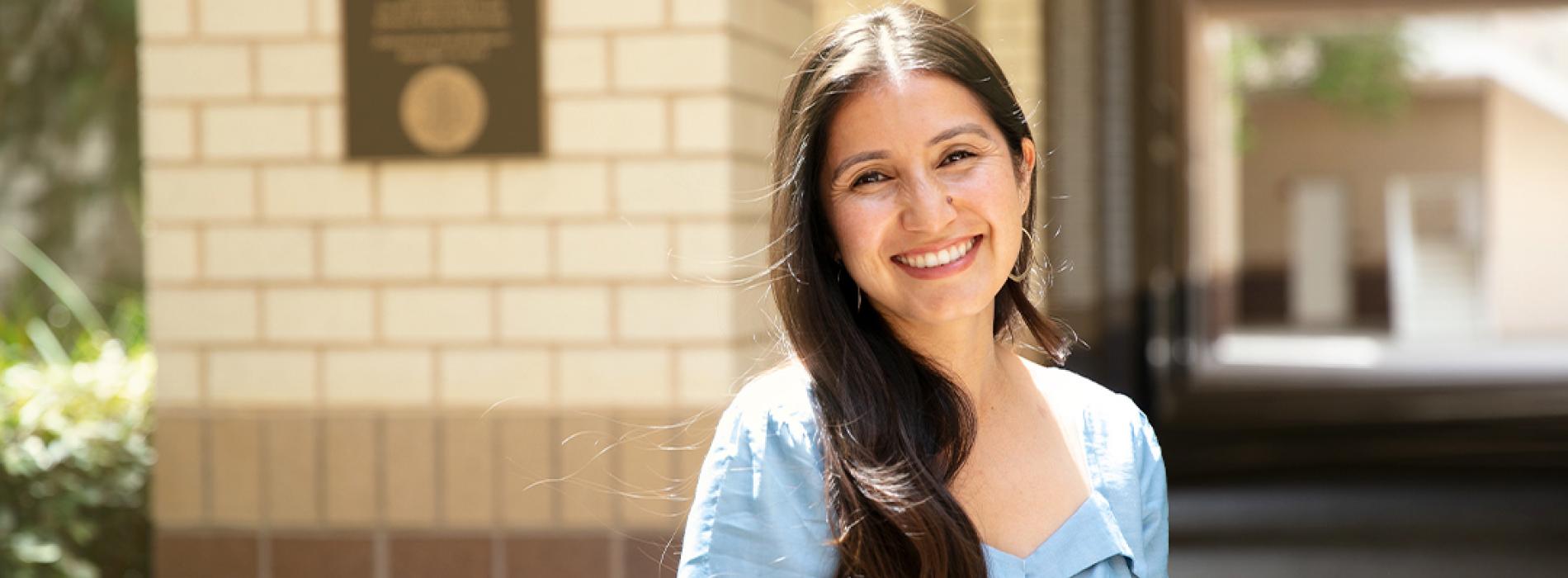
Degree: PhD in Urban Planning and Public Policy
Graduation Date: Fall 2022
Hometown: East Los Angeles, California.
Can you tell us a bit about your background and path to your graduate program?
I was born in East Los Angeles, California. For me home is in East Los Angeles and the San Gabriel Valley.
I am a proud first-generation, non-traditional college student. I began my path through higher education at Pasadena City College. After three years as a full-time student and working full time, I graduated with my A.A. in Sociology. I transferred to California State University, Long Beach where I graduated with my B.A. in Sociology. From there, I participated in the Capital Fellowship Program as a Judicial Fellow. For my fellowship year, I took graduate classes in Public Administration and Policy at the California State University, Sacramento while working in the Office of Policy, Research, and Outreach at the Superior Court of Alameda County in Oakland, California.
As a Fellow I conducted research on judicial decision-making and helped design a pretrial services pilot program for the Court. Shortly thereafter I moved to Irvine to start the PhD program in Urban Planning and Public Policy in the School of Social Ecology.
Why did you choose your field of study and your program specifically?
I ultimately chose to study urban planning because I saw it as a field where I could meld my interdisciplinary interests in sociology, critical geography, and political science, while incorporating my larger commitment to conducting research on urban inequality and anti-displacement movements among underrepresented communities. I pursued the Urban Planning and Public Policy PhD Program at UCI because of its supportive departmental culture for students like myself, openness to interdisciplinary research, and its faculty.
Have you conducted any research? If yes, can you tell us a bit about it?
My dissertation research investigates anti-gentrification activism and Latinx politics in East Los Angeles. Drawing from participant ethnography and activist oral histories, my work encompasses both nonprofit and grassroots strategies to fight gentrification and displacement in and beyond the neighborhood. Through housing and land use struggles, I examine the ways in which collective neighborhood efforts for social and economic justice work to build broader movements against the commodification of land and housing with other organizations and activists in cities across the United States.
How did your experience at UCI shape your career path?
My experience at UCI these past six years have been intellectually transformative and life changing. UCI has given me access to incredible mentors, interdisciplinary research opportunities, and work experiences to become a well-rounded scholar and community-engaged researcher. Because of this, I have been able to continue developing my research and to pursue a career path that I have always dreamed of.
What’s one piece of advice you would give to someone enrolling in the program?
I would first congratulate anyone enrolling in the program. It is a monumental achievement to gain acceptance into any graduate program and to make the decision to pursue a doctorate. I would suggest to anyone enrolling into a doctoral program in the School of Social Ecology to aggressively seek out friendly and consistent spaces where you can share and grow into your ideas. I would also recommend soaking up all the opportunities that the university has to offer, as well as all the incredible faculty, staff, and students who make the school a diverse learning opportunity.
Do you have a job lined up or are currently working?
I am currently writing my dissertation. I plan to finish by the start of the Fall quarter. In January 2023, I will start a new position as an Assistant Professor in the Department of Urban and Regional Planning at the University of North Carolina-Chapel Hill.
Where will you go from here?
From here, I will prepare for the transition to my new position at UNC-Chapel Hill by spending time with loved ones, serving my community, and teaching. I look forward to a lifelong career in teaching, research, and serving my community. In the coming years, I will develop my dissertation into a book and build upon my research.